Tag: Biology
-
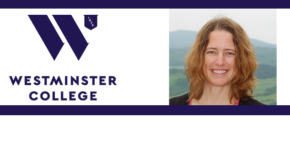
Bonnie Baxter, Westminster College – Great Salt Lake and Life on Mars
On Westminster College Week: Want to go to Mars? Head to Utah. Bonnie Baxter, professor of biology, determines a unique feature Great Salt Lake could be a stand in for the red planet. Bonnie Baxter, Ph.D., is a professor of biology and director of Westminster’s Great Salt Lake Institute. She has spent two decades studying…
-
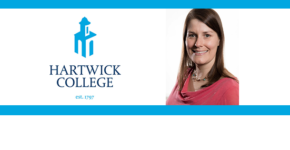
Stephanie Carr, Hartwick College – Microbes
Microbes are a rich area of study. Stephanie Carr, assistant professor of biology at Hartwick College, discusses thinking small to find big answers. Dr. Stephanie Carr is an assistant professor of biology at Hartwick College. As a microbiologist and a geochemist, Stephanie aims to understand how microorganisms impact our environment. Stephanie focuses on discovering how…
-
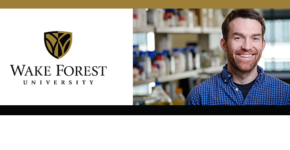
Matthew Fuxjager, Wake Forest University – Roll Snap Golden Manakins
A small bird is pushing the limits of muscle performance. Matthew Fuxjager, assistant professor of biology at Wake Forest University, explores how one bird helps itself with faster muscle movements. Dr. Matt Fuxjager is an Assistant Professor in the Biology Department at Wake Forest University. He received his MS from the University of North Carolina…
-
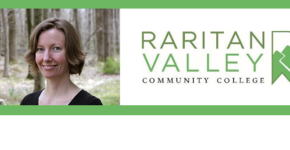
Karen Gaffney, Raritan Valley Community College – Race As A Social Construct
Is race a social construct? Karen Gaffney, professor in the English department at Raritan Valley Community College, discusses how race as a biological construct has flourished. Dr. Karen Gaffney is an English Professor at Raritan Valley Community College in NJ. She recently published Dismantling the Racism Machine: A Manual and Toolbox (Routledge, 2018), an accessible introduction to…
-
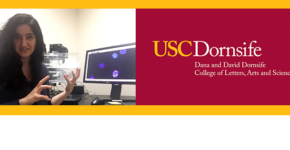
Irene Chiolo, USC Dornsife College of Letters, Arts and Sciences – First Responders In The Body
On USC Dornsife Week: Who are the first responders for damaged cells in your body? Irene Chiolo, assistant professor of biological sciences, looks into the body to find out. Irene Chiolo is an Assistant Professor of Biological Sciences with the USC Dornsife College of Letters, Arts and Sciences. She and her team investigate heterochromatin, the…
-
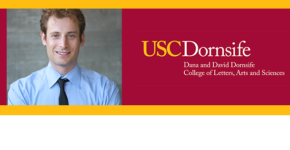
Daniel Benjamin, USC Dornsife College of Letters, Arts and Sciences – Genetics and Academic Achievement
On USC Dornsife Week: Do your genes decide the highest level of education you’ll receive? Daniel J. Benjamin, associate professor of economics, discusses this question. Daniel J. Benjamin’s research is in behavioral economics (which incorporates ideas and methods from psychology into economic analysis) and genoeconomics (which incorporates genetic data into economics). He is an Associate…
-
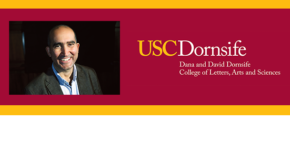
Moh El-Naggar, USC Dornsife College of Letters, Arts and Sciences – Microorganisms
On USC Dornsife Week: Not all big ideas are about big things. Moh El-Naggar, professor of physics and astronomy, discusses how something small could help us think big. Moh El-Naggar is the Robert D. Beyer Early Career Chair in Natural Sciences, and Professor of Physics, Biological Sciences, and Chemistry at the University of Southern California…
-

Gabriel Neal, Texas A&M University – Paper Cuts
Why do paper cuts hurt so much? Gabe Neal, clinical assistant professor at Texas A&M University, discusses why small slices cause such a big fuss. I am board-certified Family Medicine physician and Fellow of the American Academy of Family Physicians. My love for patients and students is what brought me from private practice to academic…
-
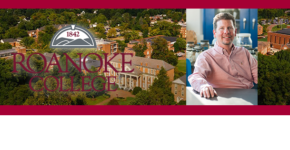
Brooks Crozier, Roanoke College – Tracking Bacteria in Water Sources
On Roanoke College Week: Microorganisms can cause big problems in a water source. Brooks Crozier, professor of biology, explores how to pinpoint where contamination comes from and how to stop it. Dr. Brooks Crozier, biology professor, teaches microbiology, mycology and phycology. He and his students perform research in the area of microbial source tracking, which…
-
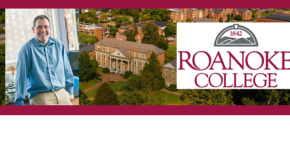
Chris Lassiter, Roanoke College – Estrogen
On Roanoke College Week: How do our organs end up in the right places? Chris Lassiter, associate professor of biology, explores the role estrogen plays in putting us together. Dr. Chris Lassiter is an associate professor of biology and Roanoke College’s director of undergraduate research. His research interests lie in the field of developmental biology;…
